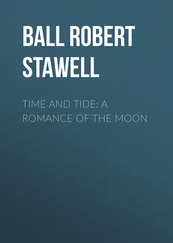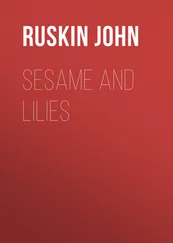John Ruskin - Time and Tide by Weare and Tyne
Здесь есть возможность читать онлайн «John Ruskin - Time and Tide by Weare and Tyne» — ознакомительный отрывок электронной книги совершенно бесплатно, а после прочтения отрывка купить полную версию. В некоторых случаях можно слушать аудио, скачать через торрент в формате fb2 и присутствует краткое содержание. Жанр: foreign_prose, literature_19, foreign_antique, на английском языке. Описание произведения, (предисловие) а так же отзывы посетителей доступны на портале библиотеки ЛибКат.
- Название:Time and Tide by Weare and Tyne
- Автор:
- Жанр:
- Год:неизвестен
- ISBN:нет данных
- Рейтинг книги:4 / 5. Голосов: 1
-
Избранное:Добавить в избранное
- Отзывы:
-
Ваша оценка:
- 80
- 1
- 2
- 3
- 4
- 5
Time and Tide by Weare and Tyne: краткое содержание, описание и аннотация
Предлагаем к чтению аннотацию, описание, краткое содержание или предисловие (зависит от того, что написал сам автор книги «Time and Tide by Weare and Tyne»). Если вы не нашли необходимую информацию о книге — напишите в комментариях, мы постараемся отыскать её.
Time and Tide by Weare and Tyne — читать онлайн ознакомительный отрывок
Ниже представлен текст книги, разбитый по страницам. Система сохранения места последней прочитанной страницы, позволяет с удобством читать онлайн бесплатно книгу «Time and Tide by Weare and Tyne», без необходимости каждый раз заново искать на чём Вы остановились. Поставьте закладку, и сможете в любой момент перейти на страницу, на которой закончили чтение.
Интервал:
Закладка:
22. I dare say you think I am a long time in coming to the pantomime; I am not ready to come to it yet in due course, for we ought to go and see the Japanese jugglers first, in order to let me fully explain to you what I mean. But I can't write much more to-day; so I shall merely tell you what part of the play set me thinking of all this, and leave you to consider of it yourself, till I can send you another letter. The pantomime was, as I said, 'Ali Baba and the Forty Thieves.' The forty thieves were girls. The forty thieves had forty companions, who were girls. The forty thieves and their forty companions were in some way mixed up with about four hundred and forty fairies, who were girls. There was an Oxford and Cambridge boat-race, in which the Oxford and Cambridge men were girls. There was a transformation scene, with a forest, in which the flowers were girls, and a chandelier, in which the lamps were girls, and a great rainbow which was all of girls.
23. Mingled incongruously with these seraphic, and, as far as my boyish experience extends, novel, elements of pantomime, there were yet some of its old and fast-expiring elements. There were, in speciality, two thoroughly good pantomime actors—Mr. W. H. Payne and Mr. Frederick Payne. All that these two did, was done admirably. There were two subordinate actors, who played, subordinately well, the fore and hind legs of a donkey. And there was a little actress of whom I have chiefly to speak, who played exquisitely the little part she had to play. The scene in which she appeared was the only one in the whole pantomime in which there was any dramatic effort, or, with a few rare exceptions, any dramatic possibility. It was the home scene, in which Ali Baba's wife, on washing day, is called upon by butcher, baker, and milkman, with unpaid bills; and in the extremity of her distress hears her husband's knock at the door, and opens it for him to drive in his donkey, laden with gold. The children who have been beaten instead of getting breakfast, presently share in the raptures of their father and mother; and the little lady I spoke of, eight or nine years old,—dances a pas-de-deux with the donkey.
24. She did it beautifully and simply, as a child ought to dance. She was not an infant prodigy; there was no evidence, in the finish or strength of her motion, that she had been put to continual torture through half her eight or nine years. She did nothing more than any child well taught, but painlessly, might easily do. She caricatured no older person,—attempted no curious or fantastic skill. She was dressed decently,—she moved decently,—she looked and behaved innocently,—and she danced her joyful dance with perfect grace, spirit, sweetness, and self-forgetfulness. And through all the vast theater, full of English fathers and mothers and children, there was not one hand lifted to give her sign of praise but mine.
Presently after this, came on the forty thieves, who, as I told you, were girls; and, there being no thieving to be presently done, and time hanging heavy on their hands, arms, and legs, the forty thief-girls proceeded to light forty cigars. Whereupon the British public gave them a round of applause. Whereupon I fell a thinking; and saw little more of the piece, except as an ugly and disturbing dream.
LETTER VI.
THE CORRUPTION OF MODERN PLEASURE.—(THE JAPANESE JUGGLERS.)
25. I have your pleasant letter with references to Frederick. I will look at them carefully. [II] Конец ознакомительного фрагмента. Текст предоставлен ООО «ЛитРес». Прочитайте эту книгу целиком, купив полную легальную версию на ЛитРес. Безопасно оплатить книгу можно банковской картой Visa, MasterCard, Maestro, со счета мобильного телефона, с платежного терминала, в салоне МТС или Связной, через PayPal, WebMoney, Яндекс.Деньги, QIWI Кошелек, бонусными картами или другим удобным Вам способом.
Mr. Carlyle himself will be pleased to hear this letter when he comes home. I heard from him last week at Mentone. He is well, and glad of the light and calm of Italy. I must get back to the evil light and uncalm, of the places I was taking you through.
(Parenthetically, did you see the article in the 'Times' of yesterday on bribery, and the conclusion of the commission—"No one sold any opinions, for no one had any opinions to sell"?)
Both on Thursday and Friday last I had been tormented by many things, and wanted to disturb my course of thought any way I could. I have told you what entertainment I got on Friday, first, for it was then that I began meditating over these letters; let me tell you now what entertainment I found on Thursday.
26. You may have heard that a company of Japanese jugglers has come over to exhibit in London. There has long been an increasing interest in Japanese art, which has been very harmful to many of our own painters, and I greatly desired to see what these people were, and what they did. Well, I have seen Blondin, and various English and French circus work, but never yet anything that surprised me so much as one of these men's exercises on a suspended pole. Its special character was a close approximation to the action and power of the monkey; even to the prehensile power in the foot; so that I asked a sculptor-friend who sat in front of me, whether he thought such a grasp could be acquired by practice, or indicated difference in race. He said he thought it might be got by practice. There was also much inconceivably dexterous work in spinning of tops,—making them pass in balanced motion along the edge of a sword, and along a level string, and the like;—the father performing in the presence of his two children, who encouraged him continually with short, sharp cries, like those of animals. Then there was some fairly good sleight-of-hand juggling of little interest; ending with a dance by the juggler, first as an animal, and then as a goblin, Now, there was this great difference between the Japanese masks used in this dance and our common pantomime masks for beasts and demons,—that our English masks are only stupidly and loathsomely ugly, by exaggeration of feature, or of defect of feature. But the Japanese masks (like the frequent monsters of Japanese art) were inventively frightful, like fearful dreams; and whatever power it is that acts on human minds, enabling them to invent such, appears to me not only to deserve the term "demoniacal," as the only word expressive of its character; but to be logically capable of no other definition.
27. The impression, therefore, produced upon me by the whole scene, was that of being in the presence of human creatures of a partially inferior race, but not without great human gentleness, domestic affection, and ingenious intellect; who were, nevertheless, as a nation, afflicted by an evil spirit, and driven by it to recreate themselves in achieving, or beholding the achievement, through years of patience, of a certain correspondence with the nature of the lower animals.
28. These, then, were the two forms of diversion or recreation of my mind possible to me, in two days, when I needed such help, in this metropolis of England. I might, as a rich man, have had better music, if I had so chosen, though, even so, not rational or helpful; but a poor man could only have these, or worse than these, if he cared for any manner of spectacle. (I am not at present, observe, speaking of pure acting, which is a study, and recreative only as a noble book is; but of means of mere amusement.)
Now, lastly, in illustration of the effect of these and other such "amusements," and of the desire to obtain them, on the minds of our youth, read the 'Times' correspondent's letter from Paris, in the tenth page of the paper, to-day; [III] Конец ознакомительного фрагмента. Текст предоставлен ООО «ЛитРес». Прочитайте эту книгу целиком, купив полную легальную версию на ЛитРес. Безопасно оплатить книгу можно банковской картой Visa, MasterCard, Maestro, со счета мобильного телефона, с платежного терминала, в салоне МТС или Связной, через PayPal, WebMoney, Яндекс.Деньги, QIWI Кошелек, бонусными картами или другим удобным Вам способом.
and that will be quite enough for you to read, for the present, I believe.
Интервал:
Закладка:
Похожие книги на «Time and Tide by Weare and Tyne»
Представляем Вашему вниманию похожие книги на «Time and Tide by Weare and Tyne» списком для выбора. Мы отобрали схожую по названию и смыслу литературу в надежде предоставить читателям больше вариантов отыскать новые, интересные, ещё непрочитанные произведения.
Обсуждение, отзывы о книге «Time and Tide by Weare and Tyne» и просто собственные мнения читателей. Оставьте ваши комментарии, напишите, что Вы думаете о произведении, его смысле или главных героях. Укажите что конкретно понравилось, а что нет, и почему Вы так считаете.












